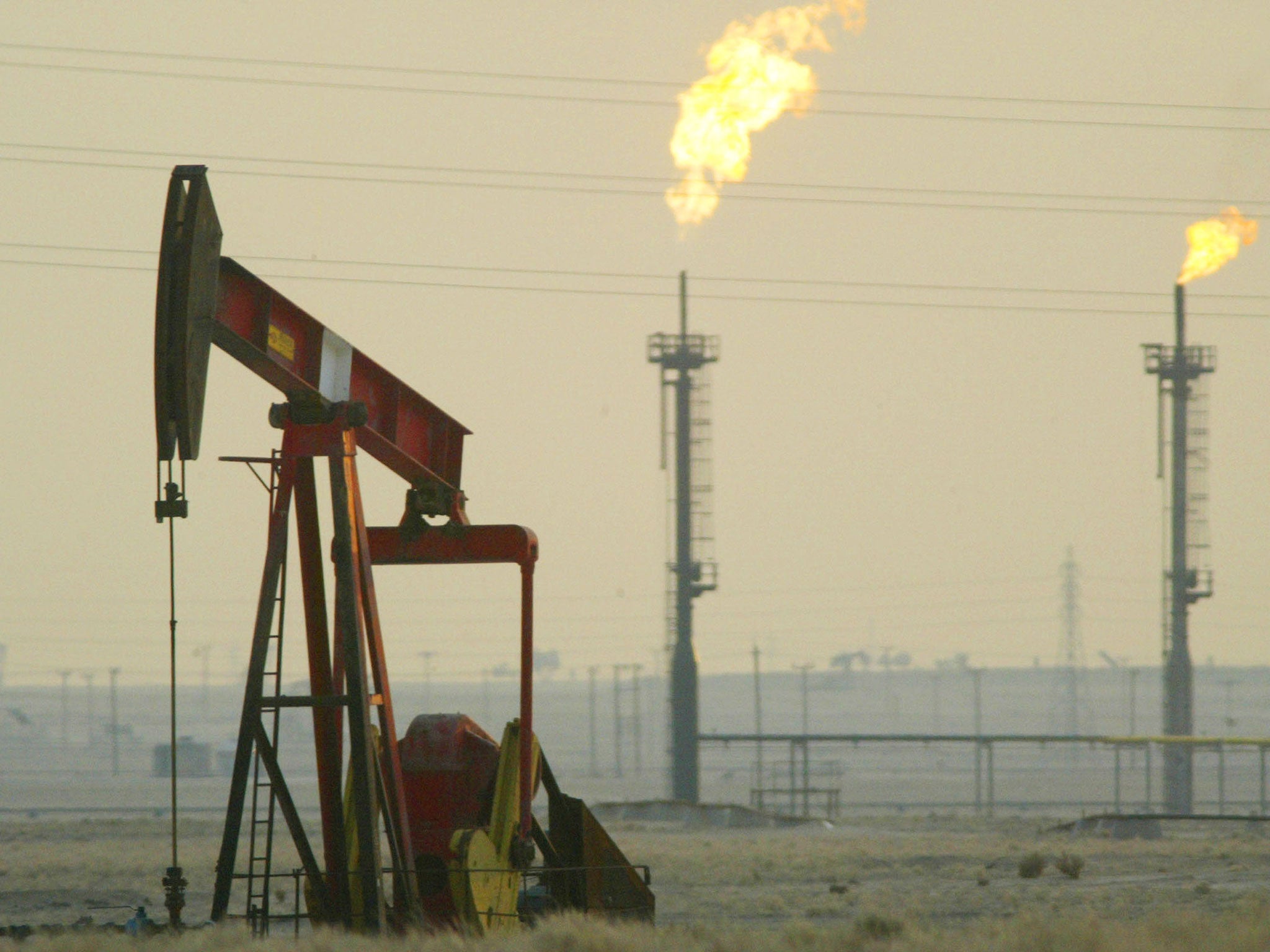Oil is a Goldilocks problem – there’s no ‘right’ price and we can’t predict what will happen to the financial markets
The weak spot is our banking system

Your support helps us to tell the story
From reproductive rights to climate change to Big Tech, The Independent is on the ground when the story is developing. Whether it's investigating the financials of Elon Musk's pro-Trump PAC or producing our latest documentary, 'The A Word', which shines a light on the American women fighting for reproductive rights, we know how important it is to parse out the facts from the messaging.
At such a critical moment in US history, we need reporters on the ground. Your donation allows us to keep sending journalists to speak to both sides of the story.
The Independent is trusted by Americans across the entire political spectrum. And unlike many other quality news outlets, we choose not to lock Americans out of our reporting and analysis with paywalls. We believe quality journalism should be available to everyone, paid for by those who can afford it.
Your support makes all the difference.One usually sure indicator that a financial crisis is turning into a wider economic slump is when the establishment tells the populace that “the real economy is sound”, or some such, even though stock markets are in turmoil. They did so in 1929, 1987, 1998 and in 2007, with little effect. Thus far, we have not heard much of that sentiment and, indeed, it would not this time be true.
Real economies are not, on the whole, booming. Here in Britain, the Chancellor and the Governor of the Bank of England, with unusual prescience, have recently warned of the hazards ahead. So this is an odd combination of slowing growth combined with falls in equity markets more usually associated with the bursting of a bubble.
Much of the answer to this novel puzzle can be found in China. At risk of patronising a nation, for all its capitalist ways its government and its people are not fully accustomed to the capriciousness of free markets. With a Chinese stock market dominated by often inexperienced private investors, and a less than transparent system of financial accounting and official management of the economy, panics are unsurprising in any case. So it has proved.
China is a sufficiently large economy now, and sufficiently connected to others, for its panicky investors to trigger reactions elsewhere. So there has been contagion, and the price of oil has been taken as a symbol of weak Chinese demand and global economic weakness, rather than a product of US fracking and otherwise hopeful geopolitical trends in the Middle East. The world oil price seems to be a Goldilocks phenomenon; at $100-plus it was too high and at $30 or below, it is too soft. There seems to be no “just right” price.
It is a mug’s game to predict what will happen to financial markets, and not much less foolish to state with confidence where the real economy is headed. What we do know with some certainty is that, sooner or later, there will be some sort of slowdown or trouble on the exchanges, and a response required. The worry now is that central banks have less room to support economies because of their pursuit of ultra-low interest rates and quantitative easing since about 2009.
The European Central Bank, as it indicated on 21 January, was maybe too conservative in the past and has more shots left in its locker, as does the Chinese central bank. But in the US, Japan and the UK there is little ammo remaining to boost confidence if things turn ugly.
In Britain, that is compounded by a relatively weak fiscal position. The austerity programme has failed to produce the base of stronger public finances that would support emergency borrowing and a programme of public spending to underpin faltering growth.
The weak spot is our banking system. Far better capitalised than before, our banks – like all banks – might find it very difficult to survive an institutional run and the authorities might also find it difficult to support them, lead them to safety or even an orderly liquidation. It is an apocalyptic thought, but one that may give the central bankers sleepless nights.
Join our commenting forum
Join thought-provoking conversations, follow other Independent readers and see their replies
Comments